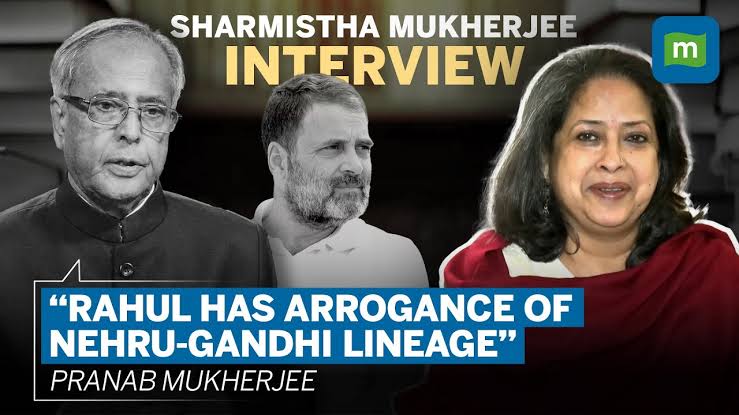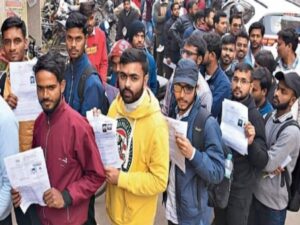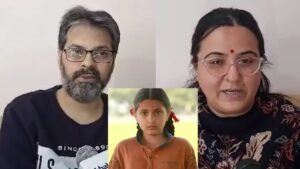Sharmistha Mukherjee Faces Backlash from Congress Supporters Over Critique of Gandhi Family Leadership
Introduction:
Sharmistha Mukherjee, daughter of the late former President of India, Pranab Mukherjee, found herself embroiled in controversy after expressing concerns about the leadership role of the Gandhi family within the Indian National Congress. In a recent interview and subsequent social media posts, Mukherjee highlighted the need for the Congress party to explore leadership options beyond the Nehru-Gandhi lineage. However, her remarks sparked a wave of backlash from certain Congress supporters, including allegations of vicious trolling and verbal abuse with sexual connotations.

The Controversy Unfolds:
Mukherjee’s critique of the Gandhi family’s dominance within the Congress party came during an interview at the Jaipur Literature Festival. She emphasized the importance of the Congress party but urged for a broader perspective on leadership, raising questions about the party’s adherence to its core values such as pluralism, secularism, and inclusivity.
Vicious Trolling and Online Abuse:
Following her remarks, Mukherjee became the target of severe online harassment from certain Congress supporters. She revealed that individuals associated with the Congress party engaged in vicious trolling on social media platforms, hurling insults and derogatory comments, some of which contained sexual connotations. Despite tagging senior Congress leaders, including Rahul Gandhi and Mallikarjun Kharge, Mukherjee claimed that there was no response to address the abusive behavior.
Open Letter to Congress Leadership:
In response to the lack of action from party leaders, Mukherjee penned an open letter addressing the Congress party’s leadership and tweeted it publicly. She reiterated her commitment to the Congress ideology while expressing concern about the party’s reliance on the Gandhi-Nehru family for leadership. Mukherjee’s open letter urged for introspection within the party to ensure that its core values are upheld in practice.
Calls for Change and Reform:
Mukherjee’s critique reflects broader sentiments within the Congress party and among its supporters regarding the need for internal reform and leadership diversification. Her willingness to challenge entrenched power dynamics signifies a growing demand for change and accountability within the party. Mukherjee’s advocacy for a more inclusive and democratic decision-making process resonates with those seeking a revitalization of the Congress party’s identity and principles.
The Legacy of Pranab Mukherjee:
As the daughter of the esteemed former President Pranab Mukherjee, Sharmistha Mukherjee’s words carry significant weight within political circles. Her commitment to the Congress party’s ideals, coupled with her willingness to speak out against internal shortcomings, reflects a dedication to her father’s legacy of public service and principled leadership.
Conclusion:
Sharmistha Mukherjee’s recent experience highlights the challenges of dissent and critique within political parties, particularly when directed towards entrenched leadership structures. Despite facing backlash and online abuse, Mukherjee remains steadfast in her commitment to the Congress party’s values while advocating for necessary reforms. Her courage to speak truth to power serves as a reminder of the ongoing struggle for transparency, inclusivity, and democratic governance within India’s political landscape. As the Congress party navigates its path forward, Mukherjee’s voice resonates as a call for introspection, unity, and renewal.





